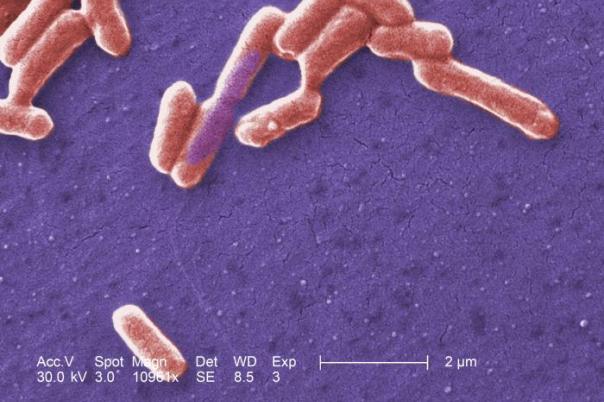Cystine knot peptides or CKPs are constrained peptides of approximately 30 amino acids in length. They have three conserved disulfide bonds arranged in a knot-like structure offering high stability. CKPs frequently occur in nature and are currently used in the clinic for the treatment of chronic pain.
Daniel Kirchhofer, a Principal Scientist at Genentech explained that his team selected two non-cyclic CKP scaffolds to build combinatorial libraries for phage display. The generated libraries consisted of approximately 10 billion different peptides displayed on M13 phage. The phage libraries were then affinity-sorted against a protein target of choice which can be immobilised on streptavidin-coated beads. Kirchhofer decided to apply this new platform for the discovery of inhibitors for the treatment of geographic atrophy.
Geographic atrophy is a form of age-related macular degeneration (AMD). Typically, geographic atrophy causes photoreceptor death without new blood vessel growth, affecting the macula region in the retina. When Kirchhofer began the project there were no treatment options available for geographic atrophy. In 2013, a study showed a high correlation of HTRA1 with both forms of AMD (geographic atrophy and neovascular AMD). HTRA1 is an extracellular protease that is strongly linked to GA and degrades key structural proteins in the retina.
To screen for HTRA1 inhibitors Genentech used phage display, Kirchhofer identified several hits, and peptide 3B3 was identified as the lead candidate. Kirchhofer said: “We chose 3B3 for further affinity maturation and built two new libraries with five or eight amino acid extensions at the C-terminus, fully randomised.” Using an activity-based probe, they labelled the active sites of the HTRA1 to deepen their understanding of the inhibitory mechanism. The research showed that the 3B3 could form crystal structures and bind to three active sites (the S region, the V221, and the cryptic pocket) of the HTRA1, effectively trapping it in an inactive state.
Kirchhofer tested the CKPs against other HTRA members including HTRA2, HTRA3, and HTRA4 but they could only inhibit HTRA1. Furthermore, the CKPs were tested against 14 trypsin-fold serine proteases but displayed no inhibition, this highlights their high selectivity.
Despite the CKPs' similar potency and selectivity to anti-HTRA1 antibodies, unfortunately, the anti-HTRA1 Fab failed to reach its clinical endpoints, bringing the geographic atrophy project to a standstill. However, this research shows that CKPs are important research tools and their potential applications for other HTRA1-associated diseases could be worth exploring.






